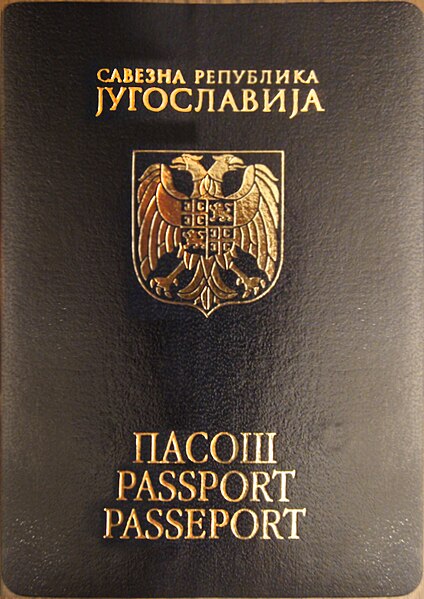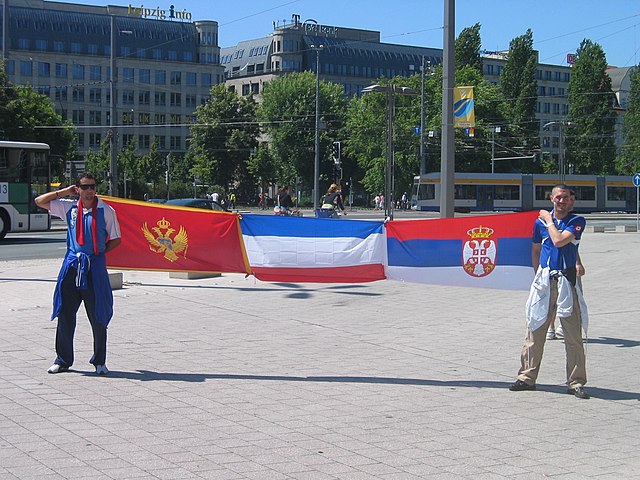The Rambouillet Agreement, formally the Interim Agreement for Peace and Self-Government in Kosovo, was a proposed peace agreement between the delegation of the Federal Republic of Yugoslavia and the Republic of Serbia on the one hand and the delegation of political representatives of the ethnic Albanian majority population of Kosovo on the other. It was drafted by the North Atlantic Treaty Organization (NATO) and named for the Château de Rambouillet, where it was initially proposed in early 1998. Among other things, the accords called for 30,000 NATO peacekeeping troops in Kosovo; an unhindered right of passage for NATO troops on Yugoslav territory; and immunity for NATO and its agents to Yugoslav law. The Kosovo Albanian side signed the agreement on 18 March 1999, however the refusal of the Yugoslav and Serbian side to sign the accords led to the 1999 bombing of Yugoslavia.
The Château de Rambouillet where the negotiations took place
Serbia and Montenegro, known until 2003 as the Federal Republic of Yugoslavia, FR Yugoslavia (FRY) or simply Yugoslavia, was a country in Southeast Europe located in the Balkans that existed from 1992 to 2006, following the breakup of the Socialist Federal Republic of Yugoslavia. The country bordered Hungary to the north, Romania to the northeast, Bulgaria to the southeast, North Macedonia to the south, Croatia and Bosnia and Herzegovina to the west, and Albania to the southwest. The state was founded on 27 April 1992 as a federation comprising the Republic of Serbia and the Republic of Montenegro. In February 2003, it was transformed from a federal republic to a political union until Montenegro seceded from the union in June 2006, leading to the full independence of both Serbia and Montenegro.
A Yugoslav passport
Supporters of the national football team during the 2006 FIFA World Cup
Mascot of the EuroBasket 2005, hosted by Serbia and Montenegro




